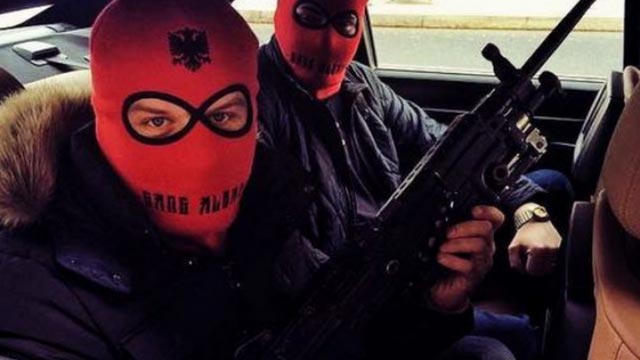The alliance between Tiguerones, Lobos, Mexican cartels, and the Albanian mafia has led to widespread insecurity in Ecuador.
In recent years, Ecuador’s criminal landscape has witnessed a surge in influence orchestrated by the unholy union between local gangs, Mexican cartels, and the Albanian mafia. This confluence of criminal entities has propelled Ecuador into the throes of its most severe security crisis to date, manifesting as a wave of violence inundating both its streets and prisons.
The local factions, in cahoots with the notorious Mexican cartels Sinaloa and Jalisco Nueva Generación, as well as the formidable Albanian mafia and FARC dissidents, have ascended in prominence within the global drug trade.
Renato Rivera, the coordinator of the Ecuadorian Organized Crime Observatory, has shed some light on their modus operandi.
He says that these Ecuadorian groups have been strategically integrated into the intricate web of organized crime, specializing in distinct phases of the illicit trade. Their operations encompass a spectrum of activities, from money laundering and arms trafficking to corruption, heists, contract killings, and extortion. This dark metamorphosis has cast Ecuador into the abyss of heightened violence, earning it the ignominious distinction of being one of the most perilous countries in Latin America.
Surge in murders
Between 2018 and 2022, Ecuador witnessed a staggering increase in homicides, catapulting from 5.8 to a staggering 25.62 per 100,000 inhabitants. Forecasts by experts in the field ominously predict a further spike to 40 in the year 2023, potentially catapulting Ecuador into the ranks of the “third or fourth most violent country in Latin America.”
This grim reality was starkly exemplified by the ruthless assassination of presidential candidate Fernando Villavicencio on August 9th, a tragic event emblematic of the country’s descent into chaos.
The crucible of this turmoil lies in the heart of the drug trade, where Ecuador, alarmingly, stands as the world’s third-largest hub for drug seizures. Projections indicate that this year, the country may surpass the grim milestone of confiscating over 200 tons of illicit substances.
Gangs fight for control
Within this cauldron of criminality, intelligence reports have identified six rival gangs vying for dominion over organized crime in Ecuador. Foremost among them were the formidable Los Choneros, who once held a near-monopoly on this sinister enterprise.
However, their supremacy began to erode in 2019 with the emergence of the first prison massacres. This weakening was exacerbated in 2020 by the assassination of their leader, Jorge Luis Zambrano, alias “Rasquiña,” who wielded formidable influence from his prison cell.
The ensuing fragmentation gave rise to new factions like Los Tiguerones, Los Lobos, and Chone Killers, which, in a strategic pivot, aligned themselves with the Jalisco Nueva Generación Cartel and forged alliances with the Albanian mafia. This criminal syndicate, according to experts, has been steadily consolidating its presence in Ecuador for a decade, acquiring export companies to fortify its operations.
Yet, the Achilles’ heel of these foreign associations, notes Rivera, lies in their transactional nature. They do not cultivate enduring ties with local organizations but rather align themselves with the highest bidder, engendering a precarious and volatile dynamic.
In their quest for territorial dominance along the drug trafficking corridor, these local gangs, particularly in areas like Guayaquil and Manta, resort to extortion, ensnaring businesses, schools, and residents alike.
Disturbingly, they coerce minors into their ranks, compelling them to assume roles as sentinels, peddlers, and enforcers. The director of the Permanent Committee for the Defense of Human Rights, Billy Navarrete, laments the harrowing reality faced by these young recruits and their families. Resistance, he attests, often results in forced migration or worse, death, underscoring the iron grip these criminal organizations have forged in territories left bereft of state presence.


0 Comments